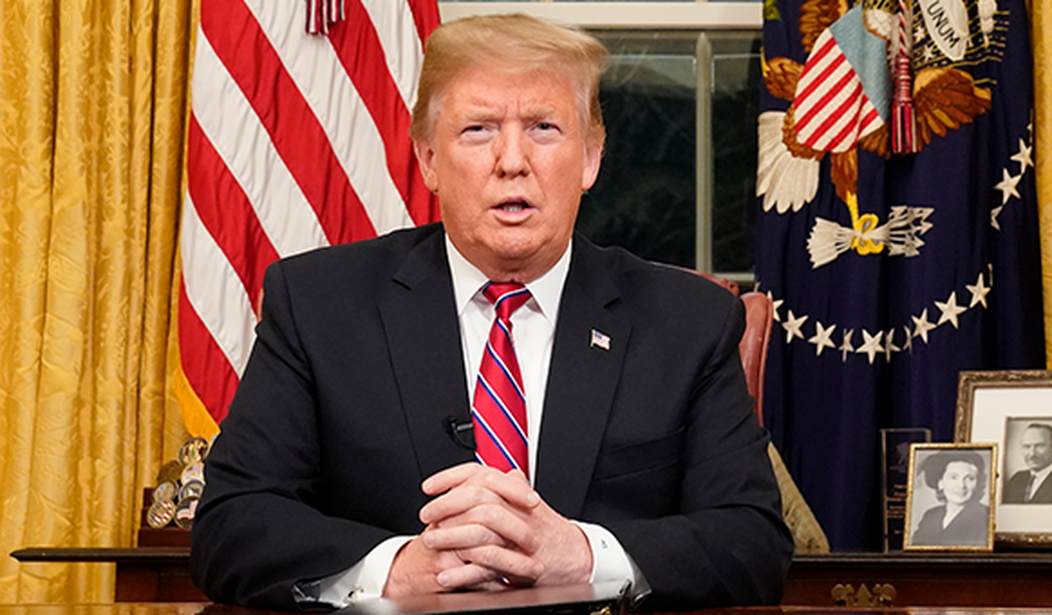The first time Donald Trump made world leaders nervous, nobody wanted to admit it.
Analysts called him unstable. Reporters mocked his tweets. Foreign diplomats rolled their eyes in public and then adjusted military calculations behind closed doors. Because underneath the noise sat a fact nobody wanted to say aloud: Trump might actually do it.
He might send the drone. He might call off the meeting. He might, just maybe, mean every word.
Back then, unpredictability was the tactic. Bluffing wasn't always the plan, but it was often enough to get by. That was the real advantage. Rogue regimes had grown used to reading American presidents like slow-moving spreadsheets. Suddenly, their formulas stopped working.
Now, the same leader once criticized for throwing rhetorical elbows has taken off the gloves completely. The hesitation is gone. The ambiguity has vanished. Those who used to fear a tweet now fear the sound of incoming.
First-Term Deterrence Was All About Doubt
Uncertainty isn’t always a liability. In Trump’s first term, it became a weapon. One day, he was calling Kim Jong Un “Little Rocket Man.” The next day, he was crossing the DMZ for a handshake. Nobody knew where the next move would land. That confusion forced opponents to wait.
In Tehran, that hesitation meant restraint. Iranian ships still taunted American vessels, but red lines weren’t crossed. After Qassem Soleimani was taken off the board, Iran didn’t retaliate with full force. They fired missiles into empty hangars. They screamed into microphones. But deep down, they paused. And they wondered.
The playbook changed. For decades, adversaries assumed Washington would delay, draft, review, and revise. Under Trump, they had to consider a new possibility: a strike might not come with a press release. It might just come.
That tension, being unsure whether the man in the Oval Office would actually act, was often enough to hold the line.
The Second Term Doesn’t Whisper
This time, there was no signal flare. No hint. No poker face.
The strikes came fast, hard, and without ceremony. Fordow, Isfahan, and Natanz were no longer names on diplomatic cables. They were coordinates.
Instead of speculation, there were satellite images. Instead of speeches, there were shockwaves. Tehran's officials claimed defiance, but behind their fire-breathers, silence took root. No barrage followed. No broad retaliation emerged. Just smoke, uncertainty, and a new set of calculations.
Those in Beijing and Moscow issued warnings, yes. But they didn’t mobilize. The EU released its usual communiqués, but inside NATO, strategists quietly welcomed the message: America’s threshold for inaction had been reset.
What the world had doubted is now visible. Trump doesn’t bluff anymore.
Why Fire Fell Instead of Fog
This wasn’t about hunger for war, or about proving something, or legacy headlines.
Something else shifted: Time and terrain, while circumstances changed the equation.
Too many rogue actors had studied the first playbook. Iran, China, and North Korea all adapted. Ambiguity became background noise. To make it count again, Trump flipped the format. Uncertainty gave way to unmistakable clarity. No warnings or messaging. Just a decisive force.
Global conditions made the rest inevitable. With conflict brewing in half a dozen zones, from Lebanon to Taiwan to northern Africa, there was no bandwidth for drawn-out detours. Trump knew that deterrence spread thin becomes deterrence ignored. He didn’t just spread it: He hammered it down.
He also isn’t campaigning anymore. There are no more debates or media tests. The man who once had to prove toughness now has nothing left to prove. That vacuum of political fear creates room for policy without delay. As the cost of hesitation rises, the need for permission fades.
Those hoping for slow, negotiated outcomes have just been handed a different reality without preparation or a preview. Just payload.
Panic Quieted the Commentators
Cable panels struggled to explain it. For years, they’d warned that Trump’s mouth would start a war. But when the bombs landed, the war didn’t.
Iran’s regime held back. The region remained on edge but stable. American assets reported no direct reprisals. The loudest reaction came from media outlets trying to rationalize why the sky hadn’t fallen.
Some accused him of bypassing diplomacy. Others suggested overreach. But those voices sounded like pre-recorded tapes, familiar and unfocused. No one could argue the results were ambiguous.
There’s an unspoken admission buried in the chatter: power used sparingly but with certainty speaks louder than words ever could.
Not Playing Nixon or Reagan
Commentators still try to box Trump inside older strategies.
Some say it’s Nixon’s “madman theory,” where unpredictability was used to scare enemies into compromise. Others say Reagan, where the projection of strength deterred open conflict.
But the comparison fails. While Nixon hinted and Reagan positioned, Trump acts.
There’s no secret code behind the strikes. No elaborate subtext. He’s not trying to appear volatile. He’s reminding people he isn’t bluffing.
That kind of clarity doesn't come from panels or papers. It comes from experience, from intuition, from leading not with diagrams but with direction.
Final Thoughts
American deterrence used to mean debates, delays, and documents. Now, it means consequences.
For too long, tyrants have tested the West with near impunity. Trump flipped the test. He made them the ones who had to pause. And they did.
No summit was held before those Iranian sites were hit. No congressional grandstanding preceded the payload. The response came first. Explanations, if needed, followed.
In a world drowning in nuance, Trump chose force with purpose. That choice was loud. And it was understood.
The doctrine is not madness. It’s math. Violate the threshold, and consequences arrive.
Critics may call it crude. Allies may call it risky. But every regime keeping its missiles in their silos today knows the truth:
It worked.










